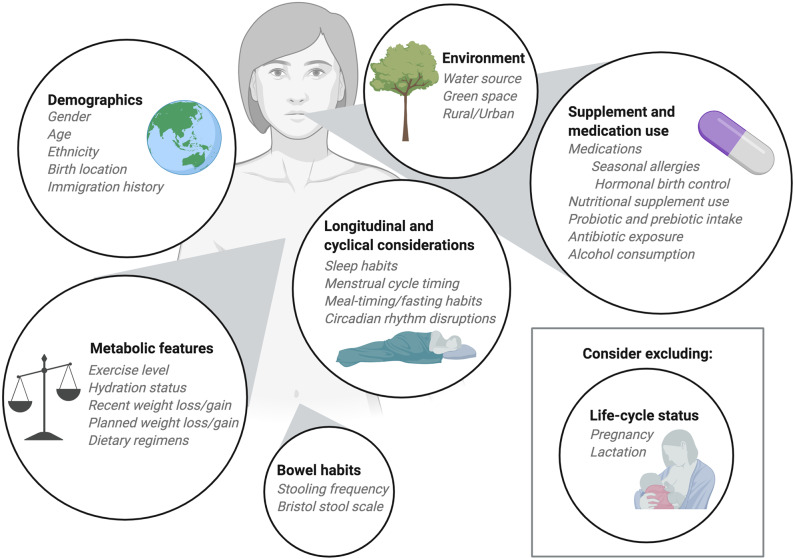Figure 2.
Considerations for participant enrollment and data collection. When planning diet-microbiome studies researchers should take into consideration numerous participant features when determining inclusion and exclusion criteria. Demographic information should be collected with a focus on features and exposures known to impact the microbiome. Information about medication use, including commonly consumed over-the-counter medications should be recorded. Depending on the research question, researchers may choose to exclude participants who consume supplements, prebiotics, or probiotics. Alternatively, researchers may ask participants to maintain consistent use of nutritional products throughout the study period. Recent infection and antibiotic exposures should be considered as part of the inclusion and exclusion criteria as should alcohol consumption. In longitudinal studies, normal cycles including sleep cycles, menstrual cycles, and meal timing or fed/fasted cycles should be collected as covariates. The metabolic status of participants can be an important covariate and, when possible, exercise level and hydration status should be recorded and held constant. For research with metabolic outcomes, exclusion of participants who have recently experienced weight loss or weight gain may be important. Typically, we exclude pregnant and lactating participants from our dietary intervention studies, but in some instances it may be appropriate to include these individuals. Finally, bowel habits should be considered at enrollment and during study participation. When collecting multiple consecutive stool samples from participants the frequency of stooling can impact study retention and complicate study timelines so it can be helpful to interview participants about their usual bowel habits before enrollment.

